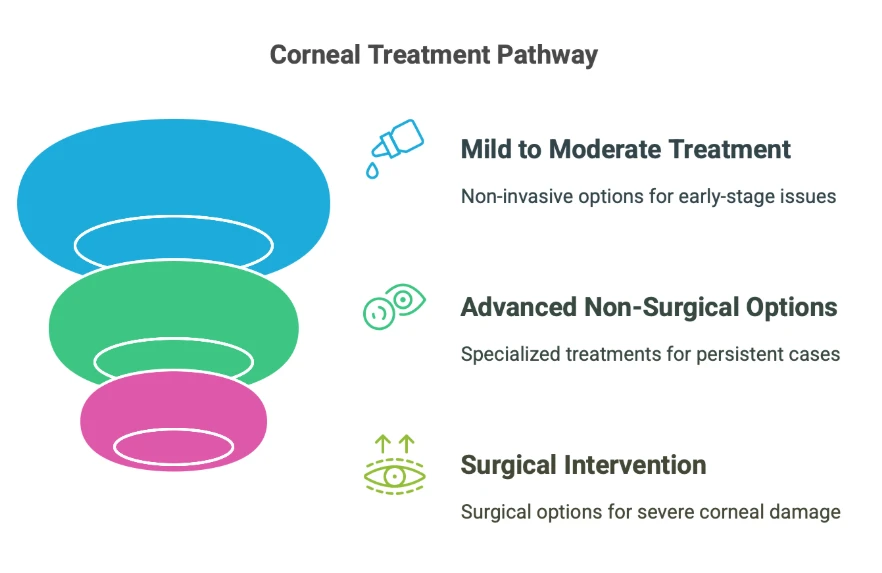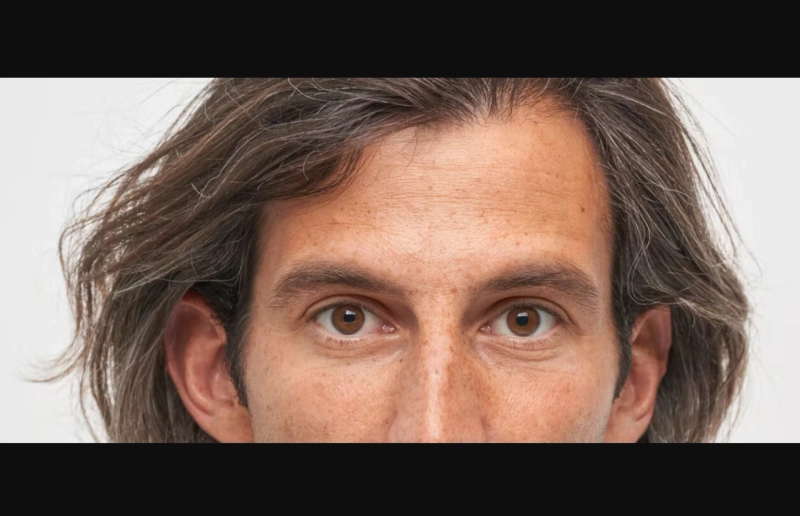Your vision plays a vital role in your daily life, from reading signs to driving safely. But what if your eyesight becomes blurry, painful, or overly sensitive to light? These could be signs of cornea damage.
The cornea, the clear, dome-shaped outermost layer of your eye, is responsible for focusing light into the eye. When it’s damaged due to injury, infection, or disease, it can severely impact your ability to see clearly. Fortunately, modern cornea treatments offer effective solutions to restore vision and protect eye health.
Let’s explore everything you need to know about the latest advancements in eye cornea treatment, and how to choose the best cornea damage treatment for your condition.
Understanding Cornea Damage: What Causes It?
Corneal damage can stem from multiple causes, ranging from minor scratches to chronic diseases. Here are the most common causes:
1. Keratoconus
This progressive condition causes the cornea to thin and bulge outward into a cone shape, leading to distorted vision. It typically develops during adolescence and can worsen over time if left untreated.
2. Fuchs’ Dystrophy
A genetic disorder that affects the inner corneal layer, causing swelling, blurred vision, and discomfort. This condition worsens over time and may require a corneal transplant if severe.
3. Photokeratitis
Also known as “sunburn of the eye,” this occurs due to excessive UV light exposure, leading to inflammation and temporary vision loss. Welders, skiers, and individuals exposed to intense sunlight without eye protection are at higher risk.
4. Corneal Abrasions and Ulcers
Scratches or open sores on the cornea can result from infections, improper contact lens use, or foreign objects in the eye. Without timely cornea treatments, these injuries can develop into corneal ulcers, which may cause significant scarring.
5. Pterygium
A non-cancerous tissue growth that extends from the conjunctiva onto the cornea, often due to excessive sun exposure. While mild cases may only cause irritation, severe growths can impair vision.
6. Eye Injuries and Infections
Accidents, surgical complications, or bacterial and viral infections can cause permanent corneal scarring if untreated. Eye infections such as herpes simplex virus (ocular herpes) can lead to recurrent damage.
Regardless of the cause, early intervention is key to preventing vision loss and discomfort.
Non-Surgical Cornea Damage Treatment Options
For mild to moderate cases, non-invasive eye cornea treatments can help heal the cornea and improve vision.
1. Prescription Eye Drops
Depending on the underlying issue, doctors may prescribe:
- Antibiotic eye drops for bacterial infections.
- Antiviral eye drops for viral infections.
- Steroid eye drops to reduce inflammation and swelling.
- Lubricating eye drops for dry eye-related corneal irritation.
2. Corneal Cross-Linking (CXL)
A cutting-edge treatment for keratoconus, this procedure uses UV light and riboflavin (vitamin B2) drops to strengthen the cornea and prevent further damage.
3. Specialized Contact Lenses
- Scleral lenses create a smooth refractive surface for irregular corneas.
- Gas-permeable lenses allow oxygen to reach the cornea while correcting vision distortions.
- Hybrid lenses combine the clarity of gas-permeable lenses with the comfort of soft lenses.
4. Phototherapeutic Keratectomy (PTK)
A laser procedure that removes corneal surface irregularities, PTK is effective in treating corneal scarring and certain degenerative diseases.
5. Bandage Contact Lenses
These therapeutic lenses act as a protective barrier, reducing pain and allowing the cornea to heal.

Surgical Cornea Damage Treatment Options
When non-invasive cornea damage treatments aren’t enough, surgical interventions can restore corneal integrity and vision.
1. Corneal Transplants
For severe corneal damage, transplanting healthy donor tissue may be the best option. The three primary types include:
a. Penetrating Keratoplasty (PK)
A full-thickness cornea transplant, PK replaces the entire cornea. While effective, recovery may take up to a year, and there’s a slightly higher risk of rejection.
b. Deep Anterior Lamellar Keratoplasty (DALK)
DALK replaces only the front and middle corneal layers while preserving the inner layer. This technique reduces the risk of graft rejection and allows for faster recovery.
c. Endothelial Keratoplasty (EK)
If the cornea’s inner layer is damaged, EK is a more targeted approach that replaces only this layer. There are two types:
- Descemet’s Stripping Automated Endothelial Keratoplasty (DSEK/DSAEK) – A thicker donor tissue is transplanted, making positioning easier.
- Descemet’s Membrane Endothelial Keratoplasty (DMEK) – A thinner donor tissue is used, offering a quicker recovery but requiring advanced surgical skill.
2. Corneal Ring Implants (Intacs)
For patients with keratoconus, Intacs implants are tiny, arc-shaped rings inserted into the cornea to reshape and stabilize its structure.
3. Amniotic Membrane Transplant
This advanced technique uses a biological membrane to promote healing, reduce inflammation, and protect the cornea.
When Should You See an Eye Specialist?
If you experience any of the following symptoms, it’s time to consult a specialist:
- Persistent blurry or distorted vision
- Increased sensitivity to light
- Eye pain, redness, or irritation
- Frequent tearing or dryness
- Difficulty wearing contact lenses
Ignoring these symptoms can lead to permanent vision loss, so early diagnosis and cornea treatments are crucial.
Key Takeaway
Your vision is one of your most valuable assets, and cornea damage shouldn’t prevent you from living life to the fullest. With today’s advanced cornea damage treatment options, you don’t have to accept vision problems as your reality.
At Center for Sight Southwest Florida, we’re committed to helping you regain clarity and confidence in your vision. Our experienced team provides compassionate, state-of-the-art corneal disease treatment tailored to your needs.
Don’t ignore the signs—your eyes deserve expert care! Schedule an appointment at our Naples, FL location today. Let’s work together to protect and restore your vision!



